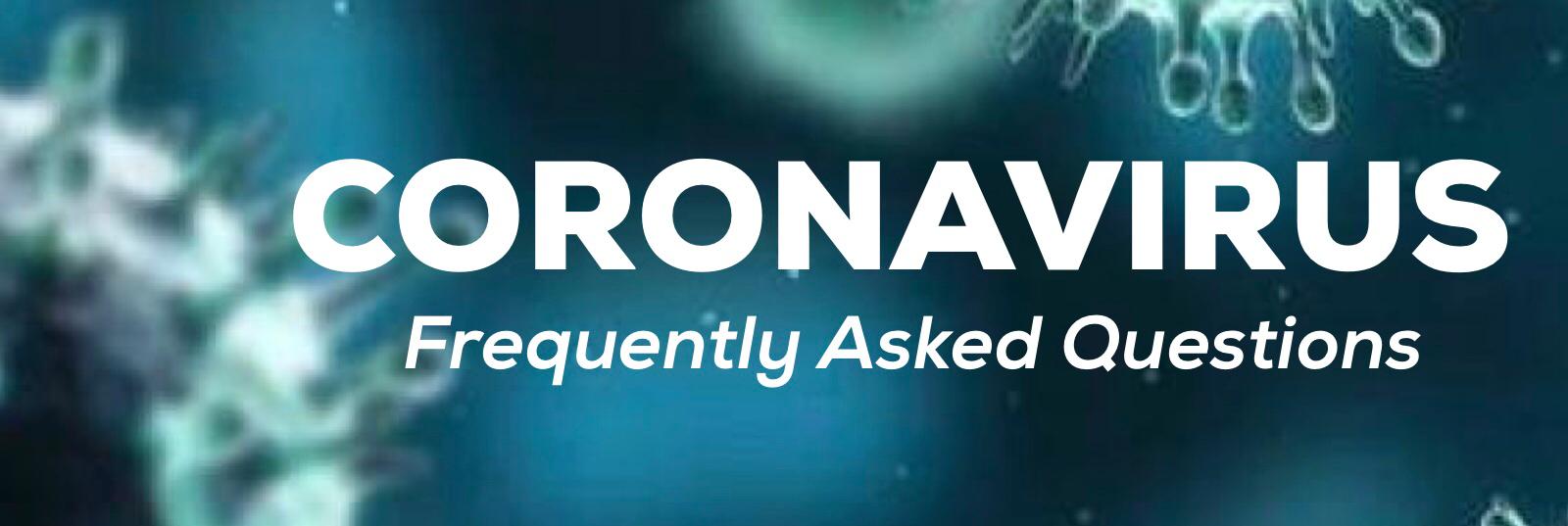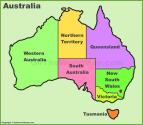Interested in studying in Australia? Here's your guide. click here to find out more.

Read message from The World Federation Secretariat
Background Information
1) What is Coronavirus?
Coronaviruses are a group of viruses that cause diseases in mammals and birds. In humans, the viruses cause respiratory infections which are typically mild, such as the common cold.
As a group, coronaviruses are common across the world. Typical symptoms of a coronavirus include fever and a cough that may progress to severe pneumonia causing shortness of breath and breathing difficulties.
Generally, a coronavirus can cause more severe symptoms in people with weakened immune systems, older people, and those with long-term conditions like diabetes, cancer and chronic lung disease. COVID-19 is a new strain of coronavirus first identified in Wuhan City, China at the end of 2019.
2) What is the difference between seasonal, epidemic and pandemic flu?
Seasonal flu refers to normal flu viruses which circulate in the human population and cause widespread illness each winter. It is the cause of approximately 650,000 deaths globally each year
An epidemic in medical terms is also called a disease outbreak and is defined by the World Health Organization (WHO) as "the occurrence of cases of disease in excess of what would normally be expected in a defined community, geographical area or season. An outbreak may occur in a restricted geographical area or may extend over several countries. It may last for a few days or weeks, or for several years."
In contrast, a pandemic is a global outbreak of a disease.
During pandemics, a new, mutated strain of a virus appears and causes outbreaks of disease around the world.
A pandemic occurs when a new virus, typically flu, which people have no immunity to, emerges and starts spreading easily from person-to-person. Affecting several countries or regions, it is a world-wide epidemic, which may last 3-4 months with the possibility of a second and sometimes third wave some months later.
The World Federation’s approach
3) How are we prepared?
In order to reinforce our overall management of the outbreak, we have consulted a group of Medical Doctors consisting of: Dr Munir Datoo, Dr Akber Mithani and Dr Sukaina Hirji).
Should the situation escalate, we have plans and communication channels in place to communicate our line of action.
4) How you can protect yourself, your family and your community?
The best thing you can do to protect yourself and others is to know the facts and follow good hygiene practices.
The World Health Organisation (WHO) has standard recommendations for the general public to reduce exposure to and transmission of a range of illnesses. These include hand and respiratory hygiene, and safe food practices:
• Frequently clean hands by using alcohol based anti-bacterial hand rub or soap and water, this will kill the virus if it is on your hands.
• Avoid close contact with anyone who has a fever and cough;
• If you have a fever, cough and difficulty breathing seek medical care early and share previous travel history with your health care provider;
• When visiting live markets in areas currently experiencing cases of novel coronavirus, avoid direct unprotected contact with live animals and surfaces in contact with animals;
• The consumption of raw or undercooked animal products should be avoided. Raw meat, milk or animal organs should be handled with care, to avoid cross-contamination with uncooked foods, as per good food safety practices
5) Good hand hygiene can help to reduce transmission of all viruses, including the coronavirus.
Therefore, when you cough or sneeze it is especially important at this time to follow these general infection control practices:
• Carry tissues with you at all times.
• Use clean tissues to cover your mouth and nose when you cough and sneeze. If you don’t have a tissue available cough / sneeze into the crook of your arm (the inside of your elbow).
• Dispose of dirty tissues promptly and carefully – bag and bin them.
• Wash your hands thoroughly and frequently with soap and water, or an alcohol-based hand gel, to reduce the spread of the virus from your hands to face, on to surfaces and to other people. Remember, this will kill the virus if it is on your hands.
• Ensure hard surfaces (for example your desktop, computer mouse, telephone, door handles and kitchen worktops) are cleaned frequently using a normal cleaning product. You can help us to help Facilities in this by keeping to a strict Clear Desk Policy at all times.
• Make sure your children follow this advice and ask them to wash their hands more carefully especially after they have been in public places (on buses, at school, in shops).
Remember – clean hands are the best defence against the spread of infection.
6) How can I protect myself from getting the coronavirus from an infected person?
To protect yourself, follow general preventive guideline measures for influenza as described above.
7) If you develop symptoms:
If you develop a high temperature, cough, sore throat or difficulty breathing please seek medical advice from your local Medical Practitioner and take their advice.
In the first instance, it is advised that this contact is by phone. Avoid attending healthcare facilities such as clinics and hospitals where other more vulnerable people are likely to be placed at significant risk.
8) How is COVID-19 spread between people?
Because it's a new illness, we do not know exactly how COVID-19 spreads from person-to- person, but similar viruses spread by cough droplets. This section will be updated as more is known about the virus and how it spreads.
9) Maintain social distancing
Try to maintain at least 1 metre (3 feet) distance between yourself and other people who are coughing, sneezing and have a fever.
Why? When someone who is infected with a respiratory disease, like COVID-19, coughs or sneezes they project small droplets containing the virus. If you are too close, you can breathe in the virus.
10) Treatment for COVID-19
Currently, there is no specific treatment for COVID-19, treatment aims to relieve the symptoms.
11) What are the symptoms of COVID-19?
The symptoms of the coronavirus in people are similar to those of seasonal flu; common signs include a feverish illness accompanied by a cough and shortness of breath. In more severe cases, the infection can cause pneumonia.
12) What should I do if I think I have the coronavirus?
If you feel unwell, have a high fever, a cough and / or sore throat:
• Stay at home (self-isolate) and keep away from mosque, centres, seminars, conferences and work.
• Follow the advice above on how to protect yourself, in addition:
• Keep warm, rest and take plenty of fluids.
• Inform family and friends about your illness and seek help for household chores that require contact with other people such as shopping.
13) What should I do if I have recently returned from a country infected by the coronavirus?
We recommend that anyone who has travelled from mainland China, Thailand, Japan, Republic of Korea, Hong Kong, Taiwan, Singapore, Malaysia, Macau, Islamic Republic of Iran*, Iraq* and Syria*. Should not have interaction with anyone (e.g. attending mosque, centres, conferences and other places where people congregate) for a period of 14 days. We ask you to stay at home, irrespective of symptoms presenting.
If during this period you develop a feverish illness accompanied by a cough and / or shortness of breath, you should contact your Medical Practitioner to seek advice by phone.
*These countries are currently not mentioned by the WHO and most government channels to avoid travelling to. However, The World-Federation has recommended these precautionary measures particularly as our members travel to these countries for ziyarat.
14) How long is the incubation period?
The incubation period is the time between infection and the onset of clinical symptoms of disease. Current estimates of the incubation period range from 1-12.5 days with median estimates of 5-6 days. These estimates will be refined as more data become available. Based on information from other coronavirus diseases, such as MERS and SARS, the incubation period of COVID-19 could be up to 14 days. WHO recommends that the follow-up of contacts of confirmed cases is 14 days.
15) If someone has been to an affected area what should they do?
Anyone who has recently returned from travel in an affected area, for business, leisure or for a spiritual journey (like ziyarat), should limit contact with others and stay away from public gatherings as mentioned above.
16) I live with someone who has returned from an elevated risk country, what do I do?
Please follow the hygiene guidance but there is no need to self quarantine unless they become symptomatic.
17) I have questions; where do I go for further information?
We highly recommend that you seek advice from your local Medical Practitioner. Also, keep abreast about your local Jamaat’s arrangement as well as the Federation that you belong to.
Finally, here are a few links that are useful:
Dr Khalil Sivjee’s presentation in ISIJ of Tronto
The World Health Organisation are closely monitoring the situation
There is also a great Q&A section on the WHO, link below.
https://www.who.int/news-room/q-a-detail/q-a-coronaviruses
Related News
Related News
The Khoja Heritage Tour runs from 2-19 January 2017. Have a look at the itinerary here.
Inspirational Speaker, Dr. Mahmood Mawjee discusses the importance of keeping on top of your health and exercise during the Holy Month of Ramadan.












